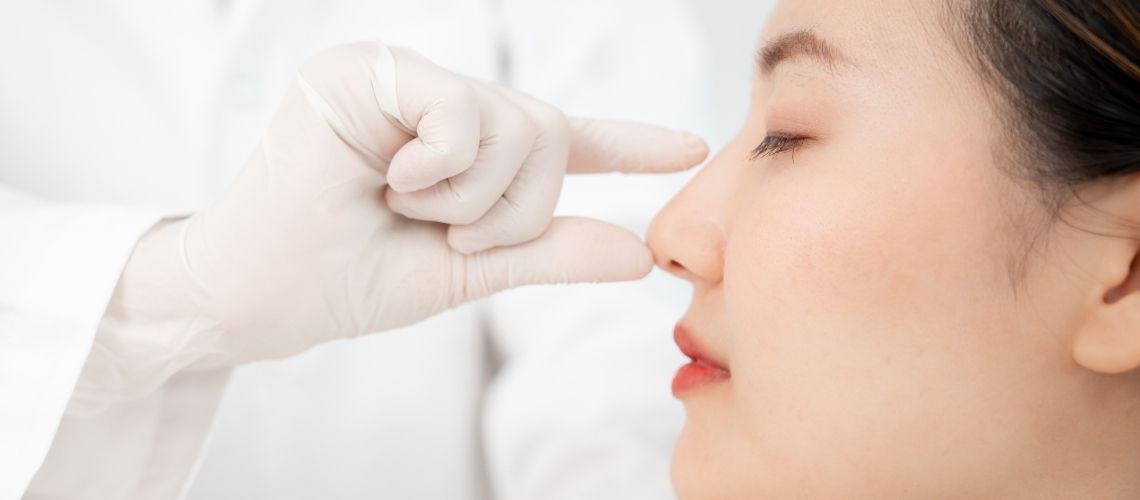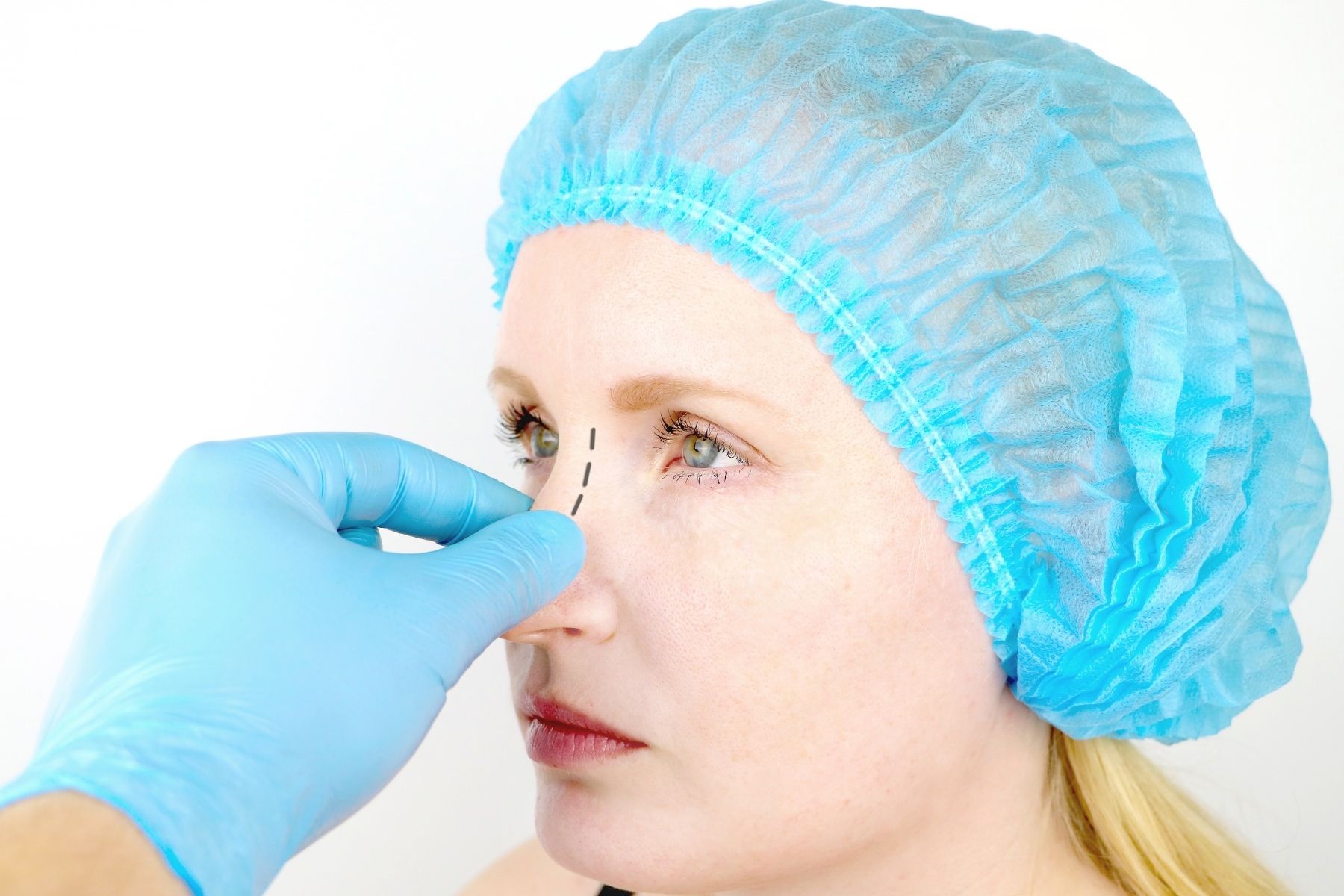Health tourism in Turkey has grown rapidly due to advanced medical facilities, experienced surgeons, and competitive prices. Patients from around the world travel for both aesthetic and functional procedures, including rhinoplasty.
Accredited hospitals and internationally trained specialists ensure high standards of care. Many clinics provide comprehensive packages covering accommodation, transfers, and translation services.
Turkey’s popularity also comes from short waiting times and personalized treatment plans. This makes it an attractive alternative to healthcare systems with longer delays.
In addition to medical services, patients benefit from combining treatment with cultural experiences. The country offers a unique balance of healthcare excellence and hospitality.
İçindekiler
Why Is Turkey Gaining Recognition as a Top Medical Hub?
Numerous reasons fuel Turkey’s rising status in global medical tourism. Over the years, the healthcare infrastructure in the country has undergone significant transformations, due to strategic government policies. This transformation has given rise to world-class facilities, a highly skilled workforce and a streamlined system that caters to both local and international patients. Below are some of the main factors behind Turkey’s appeal:
Globally Accredited Hospitals: Many of Turkey’s healthcare institutions have received accreditations from organizations such as the Joint Commission International (JCI), reflecting adherence to worldwide standards of patient safety and care quality. This accreditation serves as a reassuring sign for international patients, ensuring that facilities meet strict standards.
Advanced Medical Technology: Hospitals and clinics in Turkey frequently invest in innovative technology, which helps doctors perform complex procedures with high success rates. For instance, specialized imaging devices, robotic surgical platforms and efficient electronic health record systems are commonplace in top-tier hospitals.
Cost-Effective Treatments: Medical procedures in Turkey are more affordable than in many other parts of the world. Some analyses suggest that for medications, Turkey maintains some of the lowest average prices when compared to specific European nations. Such affordability, coupled with high quality, draws individuals looking for excellent treatment without the inflated costs.
Strategic Location and Ease of Travel: Positioned at the crossroads of Europe and Asia, Turkey is easily accessible from various global regions. Major cities like Istanbul, Izmir, Ankara and Antalya boast international airports with direct flights to numerous countries, facilitating convenient travel for medical tourists.
Rich Cultural and Historical Heritage: Beyond the realm of medicine, Turkey appeals to visitors with its ancient sites, vibrant traditions and diverse cuisine. These cultural elements can transform a medical trip into a more holistic experience, offering relaxation, exploration and enjoyment.
Government-Backed Initiatives: The Turkish government has made concerted efforts to bolster medical tourism, with policies and regulations that support healthcare institutions aiming to attract international patients. Entities such as the International Health Services Inc. coordinate between public and private sectors, promote Turkey’s healthcare services internationally and streamline patient experiences.
How Affordable Are Treatments in Turkey Compared to Other Countries?
Healthcare expenditures, particularly for procedures like cosmetic surgeries and specialized treatments, can represent a significant financial burden for patients. In many places, these costs place medical care out of reach for a considerable portion of the population. By contrast, Turkey has successfully reduced financial barriers in several ways:
Reference Pricing System for Pharmaceuticals: Turkey benchmarks the prices of drugs against a set of European countries, such as Italy and Spain. This practice keeps medication costs lower. For many patients requiring long-term treatments or multiple prescriptions, these price differences can translate into substantial savings.
Competitive Procedure Costs: The overall expenses for surgeries are often considerably lower than in Western Europe or North America.
All-Inclusive Treatment Packages: Numerous Turkish medical centers offer comprehensive treatment bundles that encompass surgery fees, hospital accommodation, transportation, translation services and sometimes even tours of nearby historical sites. This system can help international visitors budget more effectively and avoid hidden fees.
Economic Advantage for Patients: When factoring in travel costs, hotel stays and related expenses, many individuals still find that undergoing medical procedures in Turkey is more cost-effective than having the same treatment in their home countries. This affordability often aligns with consistent quality, making the choice especially appealing.
Which Medical Procedures Are Drawing International Patients?
Turkey’s healthcare sector accommodates a broad spectrum of treatments and procedures. Some treatments have proven particularly popular among international visitors due to the high success rates and well-established expertise within Turkish medical centers.
Cosmetic and Plastic Surgeries: Turkey ranks high globally in the number of cosmetic surgeries performed, including rhinoplasty, breast augmentation, liposuction and facelifts. Many surgeons have international training and memberships in prestigious professional societies. Patients often remark on the natural-looking results and robust follow-up care.
Hair Transplantation: Turkey has acquired the title of the “hair transplant capital of the world.” In cities like Istanbul, patients can find numerous clinics specializing in Follicular Unit Extraction (FUE) and other innovative hair restoration techniques. The cost-effective nature of these procedures, combined with high success rates, draws patients from diverse countries.
Dental Care and Aesthetic Dentistry: Dental treatments range from simple cosmetic enhancements, such as teeth whitening, to more involved procedures like dental implants and orthodontics. Innovative technology and certified dental practitioners ensure precise treatments. In 2023, over 400,000 health tourists visited Turkey specifically for dental care, underscoring the country’s reputation in this field.
Eye Surgeries: Ophthalmologic treatments, including LASIK for vision correction, cataract surgery and procedures for glaucoma, are widely available. Reports suggest that more than 20,000 international patients undergo eye procedures in Turkey each year, taking advantage of experienced specialists and modern medical equipment.
Orthopedic Interventions: Orthopedic surgeries, such as knee or hip replacements, benefit from Turkey’s advanced surgical techniques and top-of-the-line prosthetics. The combination of skilled surgeons, advanced imaging and postoperative rehabilitation programs leads to favorable outcomes for many patients seeking mobility improvements.
Fertility Services: Turkey hosts fertility centers specializing in treatments like In Vitro Fertilization (IVF) and Intracytoplasmic Sperm Injection (ICSI). High success rates, combined with comparatively lower treatment expenses, make the country an option for individuals or couples faced with the emotional and financial toll of fertility challenges.
Cardiac and Oncological Treatments: Cardiology and oncology are other strong suits in Turkish healthcare. From coronary artery bypass grafting to complex cancer treatments like chemotherapy and radiotherapy, Turkish hospitals employ up-to-date medical devices and treatment protocols. Many international patients commend attentive aftercare available during recovery.
Bariatric (Weight Loss) Surgeries: Gastric bypass, sleeve gastrectomy and gastric banding are offered at reputable institutions equipped with specialized staff to monitor patients pre- and post-surgery. This detailed attention helps ensure long-term success and weight management.
Dermatological Procedures: Dermatology clinics frequently use modern laser therapies, advanced acne treatments and minor surgical procedures to address skin issues. International visitors may also consult Turkish dermatologists for cosmetic enhancements like Botox injections or chemical peels.
In What Ways Do Turkish Hospitals Maintain High Standards?
Several layers of oversight, accreditation and professional development maintain the quality of care in Turkey’s medical facilities. These layers guide consistent standards in patient safety, medical ethics and staff education.
National Accreditation Systems: The Turkish Health Care Quality and Accreditation Institute , under the Ministry of Health, establishes protocols to evaluate healthcare institutions. It sets the Standards of Accreditation in Health, evaluating hospitals’ performance in patient safety, quality of clinical care and organizational management.
Alignment with International Criteria: Collaboration with the Turkish Standards Institution (TSE) helps ensure that local standards meet global best practices. Many Turkish hospitals also pursue Joint Commission International (JCI) accreditation, a recognized benchmark reflecting patient-centered care and clinical excellence.
Quality Assurance Initiatives: Healthcare facilities often embrace detailed quality management systems, conducting internal audits and continuous improvement programs to address any gaps. Several studies point to accreditation as a driving force behind enhanced institutional development and better financial performance.
Professional Development of Healthcare Providers: Healthcare staff, including doctors, nurses and allied health professionals, undergo regular training. Updates on breakthroughs in medical research and technology keep practitioners abreast of the latest treatments and procedures.
Ethical and Legal Frameworks: Clear guidelines set by the Ministry of Health reinforce ethical medical practice and safeguard patient rights. The Regulation on International Health Tourism and Tourist Health, enacted in 2017, dictates that healthcare providers who wish to serve international patients meet stringent standards of service and authorization.
How Does Turkey Blend Healthcare and Cultural Discovery?
Health and well-being often improve when patients feel calm, inspired and immersed in supportive environments. Turkey’s cultural backdrop provides an added dimension to medical care, turning what might seem like a purely clinical journey into a more engaging experience.
Opportunities for Exploration: While recovering, many patients choose to visit iconic spots like the Hagia Sophia in Istanbul, the ancient city of Ephesus near Izmir or the fairy chimneys in Cappadocia. These explorations can serve as metaphors for renewal—just as an individual invests in personal health, stepping into centuries-old landmarks can offer a perspective on resilience and enduring beauty.
Therapeutic Aspects of Travel: Engaging in cultural activities, sampling local cuisine and immersing oneself in historical sites can have a healing effect on the mind. Many people report feeling energized or uplifted when they switch environments and take time to discover new cultures while receiving medical treatment.
Combination of Health with Leisure: For some, medical travel serves as the initial reason for the journey, but relaxation and leisure can support mental health during recovery. Traditional Turkish baths, known as hammams or spa hotels across the country, may help patients de-stress and accelerate the healing process.
Do Patients Generally Express Satisfaction with Their Experiences?
Patient satisfaction hinges on the quality of treatment, communication with medical staff, comfort during hospital stays and the results of the procedure. In Turkey, these elements come together in ways that often exceed international patients’ expectations:
Consistently High Success Rates: The proficiency of surgeons, supported by technologically advanced facilities, contributes to favorable outcomes. This is evidenced in fields like hair transplantation and cosmetic surgeries, where success rates and client reviews are frequently positive.
Growing Patient Numbers: Turkey’s medical tourism numbers have increased over the last decade. In 2019, around 701,000 health tourists visited the country and estimates suggest that the figure rose to 1.8 million by 2023. The upward trend hints to widespread patient satisfaction and positive word-of-mouth referrals.
Diversity of Services: Hospitals and clinics cater to a large variety of medical needs. A patient could come for a hair transplant, while a friend or family member might receive dental implants in the same city. This concentration of specialized services, offered in a specific location, enhances the overall medical travel experience.
Personalized, Multilingual Assistance: Many private hospitals employ patient coordinators fluent in multiple languages. These coordinators help with every aspect of the stay, from organizing airport pickups to explaining follow-up instructions. This personalized touch reduces the stress often associated with being in a foreign environment.
Transparent Treatment Plans: Several clinics provide detailed treatment quotes, clarifying exactly what is covered. Breaking down the full cost in advance eases financial worries and builds trust. When patients realize that there are no hidden or extra expenses, satisfaction rises significantly.
What Kind of Support Can International Visitors Expect Upon Arrival?
International patients are welcomed into an environment carefully designed to manage logistical and medical challenges. Services range from visa facilitation to post-operative recovery plans, ensuring that visitors feel well cared for, even if they are far from home.
Assistance from the Outset: Many clinics and hospitals maintain dedicated international patient departments that manage visas, offer airport transfers and guide patients through local transportation options. Some also help with accommodation by arranging hotel bookings near the medical facility.
Hospitality Services: Turkey is known for its warm hospitality. In the realm of healthcare, this extends to translation services, dietary accommodations reflecting cultural or religious preferences and leisure activities for patients and their companions.
Integration with Tour Operators: Some medical centers partner with tour operators to provide cultural excursions or guided city tours. This partnership combines the best of medical care with the unique experiences offered by Turkey’s storied landscapes and heritage sites.
Are Language Barriers a Problem for Foreign Patients?
For medical travelers, clear communication with healthcare providers is paramount. Without it, understanding treatment procedures, risks and benefits can be challenging. In Turkish medical facilities, a variety of strategies minimize language barriers:
Multilingual Medical Teams: Many private hospitals recruit physicians, nurses and administrative staff who speak English, Arabic, German or other languages frequently spoken by their patient demographic. Even beyond major international languages, some facilities cater to Russian, French and Spanish speakers.
Professional Translators: When in-house multilingual staff are not available, professional interpreters step in. These individuals facilitate discussions between doctors and patients, ensuring critical points of diagnosis and treatment are conveyed accurately.
Written Materials and Digital Tools: Some hospitals provide consent forms, post-operative guidelines and medication information in multiple languages. Others use translation apps that streamline communication in real time.
Focus on Patient Comfort: The comfort that comes from understanding every step of the procedure helps reduce anxiety. Turkish healthcare providers prioritize comprehensive communication, recognizing that linguistic clarity is as important as medical precision.
How Do Public and Private Hospitals Differ in Their Approach?
Turkey’s healthcare landscape includes both public and private hospitals. While standards overall remain high, there can be notable distinctions in terms of patient flow, waiting times and supplementary services:
Public Hospitals: These establishments deliver wide-reaching healthcare coverage for Turkish citizens and may see high patient volumes daily. This can sometimes result in longer waiting times. However, many public facilities still adhere to stringent quality guidelines and doctors undergo rigorous training.
Private Hospitals: Private hospitals and clinics cater more directly to the medical tourism market, offering shorter wait periods, multilingual staff and tailored care packages. Rooms in private hospitals often resemble hotel suites and staff members dedicate more time to individual patient needs. These personalized services can come at higher prices than public alternatives, though still less than equivalent hospitals in some Western countries.
Does the Government Actively Support Turkey’s Medical Tourism Industry?
The Turkish government recognizes the economic and social benefits of drawing health-focused travelers to the country and has implemented numerous strategies to expand this industry.
Regulation on International Health Tourism and Tourist Health (2017): This regulation sets minimum standards for healthcare providers offering services to foreign patients. From authorization requirements to service quality measures, it codifies best practices and uniform standards across facilities.
Strategic Economic Planning: Projections estimate global health tourism spending will surpass \$1 trillion. Turkey’s contribution to this market is steadily rising, which impacts the national economy positively and motivates further government investment. Various incentives and tax benefits for healthcare providers aim to foster growth in the sector.
Health Transformation Program: Over the past decades, Turkish authorities have introduced reforms to expand and modernize healthcare. This transformation includes upgrading medical facilities, training programs for healthcare workers and encouraging private sector involvement to keep pace with global progress.
What Benefits Arise from Technology Integration in Healthcare Facilities?
Modern technology weaves throughout Turkey’s healthcare system to bolster efficiency, accuracy and patient-centered care. From patient admissions to surgical procedures, technological advancements shape the entire medical journey.
Electronic Health Records (EHRs): Most public hospitals have adopted at least a basic level of electronic records, promoting cohesive sharing of patient information between specialists. This system reduces errors and duplication, thereby enhancing the continuity of care.
Telemedicine Services: Remote consultations have become more common, particularly for individuals living in rural or underserved regions. Through telemedicine, patients can access expert guidance without traveling long distances. Telemonitoring devices also help medical staff keep track of patients’ vitals from afar.
Robotic-Assisted Surgeries: Some specialized centers offer robotic surgery, which can increase precision and reduce recovery times. Surgeons guide mechanical arms that can perform intricate maneuvers not easily replicated by human hands alone.
Diagnostic Imaging and Lab Advancements: Advanced imaging modalities like 3D mammography and PET-CT (Positron Emission Tomography–Computed Tomography) scans enable earlier and more precise diagnoses. Better diagnostics translate into targeted treatments, improving patient prognoses across multiple disciplines.
How Do Safety and Security Influence the Choice of a Medical Destination?
Safety is a paramount concern for any traveler, more so for individuals seeking medical care abroad. The ability to feel protected and well-supported can either propel or dissuade a patient from selecting a particular country.
Stable Environment: Turkey’s major cities maintain heightened security measures, particularly around key tourist areas, hospitals and transportation hubs. Healthcare centers are well-designed to manage emergencies and most private institutions have on-call translators who can assist patients at any time.
Accredited Facilities: The growing number of hospitals accredited by JCI demonstrates a commitment to international safety protocols. Patients often research these accreditation details to ensure the institution adheres to rigorous standards, akin to a seal of approval.
Transparent Communication: When healthcare facilities explain procedures, potential complications and emergency measures up front, patients feel more comfortable. This transparency encourages confidence and fosters a positive perception of the country’s medical tourism structure.
How Are Future Trends Shaping Medical Tourism in Turkey?
Turkey’s medical tourism landscape continues to evolve. Ongoing developments in technology, research and legislative support shape the next phase for the country’s healthcare sector.
Increasing Specialization: Many facilities aim to excel in niche procedures, such as advanced organ transplants or complex cancer treatments. This specialization can boost Turkey’s credibility in highly demanding fields of medicine and attract visitors seeking innovative solutions for serious conditions.
Rise of Digital Platforms: The use of websites, mobile applications and AI-based tools for scheduling appointments, assessing patient needs and personalizing treatment plans is becoming more prevalent. Streamlined digital services eliminate inefficiencies and keep patients informed through every step of their medical journey.
Collaboration with Academic Institutions: Partnerships between hospitals and universities foster research that can lead to breakthroughs in various specialties. The findings from clinical trials and academic projects can be implemented directly into medical practice, keeping Turkish healthcare coordinated with the global forefront of innovation.
Expansion of Wellness Tourism: Alongside core medical procedures, Turkey’s wellness tourism is seeing heightened interest. Visitors sometimes choose to extend their stay, participating in thermal springs, specializing in spa treatments or alternative healing therapies rooted in local traditions.
Do Patients Find a Comprehensive Care Experience, from Arrival to Departure?
Medical tourism in Turkey often unfolds as a seamless journey organized to accommodate the full scope of patient needs. From the moment one lands to the time of departure, healthcare providers and government agencies collaborate to ensure an efficient, welcoming and safe process.
Pre-Travel Planning: Potential patients typically schedule online consultations or phone calls with hospitals to discuss treatment options. During these sessions, medical teams assess the patient’s condition and suggest a personalized plan, including an approximate cost quote.
Arrival and Treatment: Airport transfers bring patients directly to partner hotels or hospital accommodations. Upon admission, medical staff conduct any necessary preliminary tests, confirm the diagnosis and provide information on the next steps.
Procedure and Recovery: Surgical or other interventions proceed in accredited facilities equipped with up-to-date technology. The postoperative period often includes comfortable rooms, physiotherapy sessions if needed and continuous monitoring of vital signs.
Post-Treatment Support: Many clinics offer discharge checklists, medication instructions and scheduled follow-up appointments. Some also organize telehealth check-ups after the patient has returned home to monitor progress, making sure recovery proceeds smoothly.
Leisure Opportunities: Individuals who feel physically capable might explore nearby cultural or tourist attractions. Even short visits, such as a stroll through Istanbul’s Grand Bazaar, can infuse the recovery period with a sense of adventure and achievement.

Prof. Dr. Murat Songu – Rhinoplasty (Nose Aesthetics) Specialist
Prof. Dr. Murat Songu was born in 1976 in Izmir and completed his medical education at the Ege University Faculty of Medicine. He then completed his residency training in the Department of Otorhinolaryngology at Celal Bayar University. Between 2005 and 2006, he received advanced training in rhinoplasty, functional nasal surgery, and skull base surgery in Bordeaux, France, working with leading rhinologists such as Prof. Vincent Darrouzet and Dr. Guy Lacher.
Prioritizing natural appearance, the preservation of breathing function, and facial aesthetic harmony, Prof. Dr. Songu is nationally and internationally recognized for his expertise in open rhinoplasty, piezo (ultrasonic) rhinoplasty, revision rhinoplasty, tipplasty, and functional septorhinoplasty. He has participated as an instructor and speaker at numerous rhinoplasty congresses worldwide.
With over 100 scientific publications, book chapters, and more than 1700 citations, Prof. Dr. Murat Songu is one of Türkiye’s most respected academics in the field of rhinoplasty, combining natural, facially harmonious, and functional results with scientific and aesthetic excellence.









